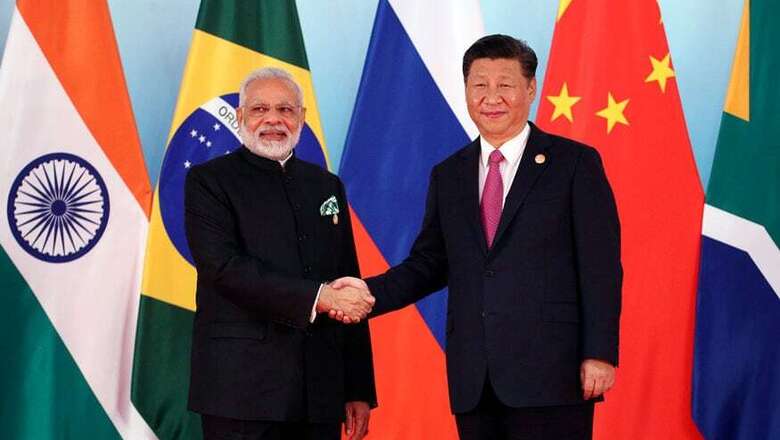
views
Wuhan: All eyes are keenly trained on the central Chinese city of Wuhan where Prime Minister Narendra Modi will hold informal talks with Chinese President Xi Jinping on Thursday, around 3pm. The meeting is slated for two days so it will continue till Friday morning in the complex that houses the iconic villa of the People's Republic of China's founding father Mao Zedong.
PM Modi before leaving for Wuhan had said that he and President Xi will “review the developments in the India-China relations from a strategic and long-term perspective.” We have been given to believe that this unprecedented exercise is being undertaken to create mutual trust and understanding between the two Asian giants. It is meant to ease the strain in the relations after the 73-day long Doklam standoff last year between June and August.
An unusual amount of time and space is being provided to the top leadership so that they can freely exchange views. Sources said that it will help both sides understand the domestic politics that are influencing foreign policy making. PM Modi indicated the same in his departure remark. He said they will discuss their respective “visions and priorities for national development, particularly in the context of current and future international situation.”
In this context for China and for President Xi personally, the Belt and Road Initiative (BRI) gains prime significance. China is likely to highlight its importance for regional connectivity and economic growth
India's concerns on BRI vis-a-vis the China-Pakistan Economic Corridor (CPEC) are well known. India boycotted the BRI summit in May, 2017 citing China's disregard for India's sovereignty and territorial integrity as the reason.
For India there are several sticking points as far as China is concerned. India's NSG bid was blocked by China, Masood Azhar's designation as global terrorist by the UN was again blocked by China and the boundary dispute for which there is already a Special Representatives mechanism in place for discussions.
But sources indicated the discussion at the highest level will not be taken up issue by issue but will dwell on the larger perspective of improving ties. It is believed that both sides will decide to set aside territorial differences and look at ways of convergence on other aspects of the relationship.














Comments
0 comment